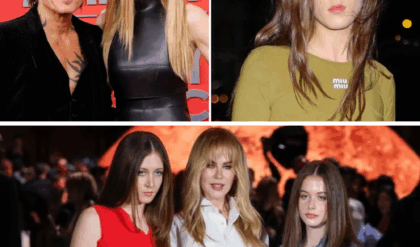Introduction
Disney’s live-action remake of Snow White, released on March 19, 2025, was anticipated to be a cornerstone of the studio’s ongoing reimagination of its animated classics. Starring Rachel Zegler as the titular princess and Gal Gadot as the Evil Queen, the film aimed to modernize the 1937 fairy tale for a new generation. However, the film’s theatrical run, particularly its performance over the Mother’s Day weekend in May 2025, has been labeled a catastrophic failure, with reports describing it as one of the costliest flops in Disney’s history. Amidst this backdrop, Rachel Zegler has broken her silence, offering a perspective that challenges the narrative of disaster and raises questions about the film’s reception, Disney’s strategy, and the role of public perception. This article explores the box office performance, Zegler’s response, and the broader implications for Disney’s live-action remake strategy.
A Box Office Catastrophe?
Disney’s Snow White opened to a modest $42.2 million domestically, securing the top spot for its debut weekend but falling short of expectations for a film with a reported budget of $240–270 million. By the Mother’s Day weekend, roughly six weeks into its theatrical run, the film’s performance had plummeted. According to reports, it earned a mere $431,000 domestically that weekend, contributing to a global total of approximately $195–200 million. With production and marketing costs estimated at $410 million, the film is projected to lose Disney upwards of $215 million, cementing its status as a historic box office bomb.
The Mother’s Day weekend was particularly telling. A re-release in over 1,200 screens across the U.S. yielded a pitiful $252 per screen, a figure that underscores the film’s inability to sustain audience interest. Critics have pointed to a combination of factors: lackluster reviews (a 40% critics’ score on Rotten Tomatoes), controversies surrounding the film’s production, and a perceived disconnect with audiences expecting a faithful adaptation of the beloved classic. The audience-driven Popcornmeter score of 72% suggests some appreciation, but not enough to salvage the film’s theatrical run.
Rachel Zegler’s Response: Defiance or Deflection?
Rachel Zegler, the 23-year-old star whose career skyrocketed with roles in West Side Story (2021) and The Hunger Games: The Ballad of Songbirds & Snakes (2023), has faced intense scrutiny throughout the Snow White saga. Her comments during the film’s promotional phase, particularly critiques of the original 1937 film’s outdated elements, sparked backlash from conservative audiences and fans of the classic. Posts on X amplified these sentiments, with some users accusing Zegler of undermining the film’s appeal by emphasizing its “woke” reimagining, such as downplaying the romantic elements of the story.
In a statement released shortly after the Mother’s Day weekend, Zegler addressed the box office disappointment with a mix of resilience and introspection. “I poured my heart into this role, and I believe in the story we told,” she said in an interview with The News. “Box office numbers don’t define the value of art, and I’m proud of what we created, even if it didn’t resonate with everyone.” Zegler acknowledged the controversies but dismissed the notion that her political views or promotional comments were solely responsible for the film’s failure. “People will always find reasons to criticize, but I won’t let that dim my passion for storytelling,” she added.
Zegler’s response has sparked mixed reactions. Supporters argue that she’s been unfairly scapegoated for Disney’s broader missteps, including a saturated live-action remake market and questionable creative decisions, such as the use of CGI for the Seven Dwarfs instead of casting actors with dwarfism. Critics, however, contend that Zegler’s dismissive tone risks alienating audiences further, particularly those who felt her comments disrespected the original Snow White. Posts on X reflect this divide, with some praising her defiance and others labeling her “delusional” for downplaying the film’s poor performance.
The Controversies That Shaped the Narrative
The Snow White remake was embroiled in controversy from its inception. Zegler’s casting as Snow White, a character traditionally depicted with “skin as white as snow,” drew criticism from some quarters, despite her vocal defense of the casting as a step toward inclusivity. Additionally, Zegler’s pro-Palestine comments and Gal Gadot’s contrasting political stance fueled boycotts in certain regions, further complicating the film’s marketability. The decision to reimagine the Seven Dwarfs as CGI characters also sparked backlash, with advocates for disability representation arguing that it sidelined actors with dwarfism.
These controversies, compounded by Zegler’s promotional remarks, created a perfect storm. In one widely circulated interview, Zegler suggested that the remake was not primarily a love story, stating, “A lot of people will assume it’s a love story just because we cast a guy in the movie.” This comment, echoed in X posts, alienated fans who cherished the romantic core of the original. The film’s narrative shift—Snow White earning her name through surviving a childhood snowstorm—further distanced it from the fairy tale’s roots, contributing to its mixed reception.
Disney’s Live-Action Remake Strategy: A Sinking Ship?
The Snow White debacle raises broader questions about Disney’s reliance on live-action remakes. While films like The Lion King (2019) and Beauty and the Beast (2017) were box office juggernauts, recent efforts, including Dumbo (2019) and The Little Mermaid (2023), have shown diminishing returns. Snow White’s failure, following the underperformance of 2023’s Wish, suggests that audiences may be tiring of rehashed classics, particularly when they deviate significantly from their source material.
Disney’s decision to re-release Snow White in May, just before its digital release, has been widely criticized as a desperate attempt to recoup losses. The move backfired, with the film’s per-screen average highlighting its lack of staying power. Analysts argue that Disney’s strategy of flooding the market with remakes, often at the expense of original storytelling, risks eroding brand loyalty. The upcoming Lilo & Stitch and Moana remakes, with lower budgets and less contentious pre-release buzz, may offer a chance for recovery, but the Snow White fallout could have lasting repercussions.
Zegler’s Next Steps: A Comeback in the Making?
Despite the Snow White disaster, Zegler remains a rising star. She has already lined up her next project, a film titled She Gets It From Me, opposite Marisa Tomei, signaling her intent to move past the controversy. Her previous successes—West Side Story grossed critical acclaim, and The Hunger Games prequel earned $348 million globally—suggest that Snow White may be an anomaly in an otherwise promising career. Industry insiders note that Zegler’s talent and charisma remain bankable, provided she navigates future projects with greater sensitivity to audience expectations.
Conclusion
The Snow White box office disaster, particularly its dismal Mother’s Day weekend performance, marks a low point for Disney and Rachel Zegler. Yet, Zegler’s response—defiant, reflective, and forward-looking—challenges the narrative of failure. While the film’s financial losses are undeniable, its story raises deeper questions about audience expectations, the viability of live-action remakes, and the impact of public discourse on a film’s fate. As Disney grapples with its next steps and Zegler prepares for her comeback, the Snow White saga serves as a cautionary tale in an era where art, commerce, and perception are inextricably linked.





